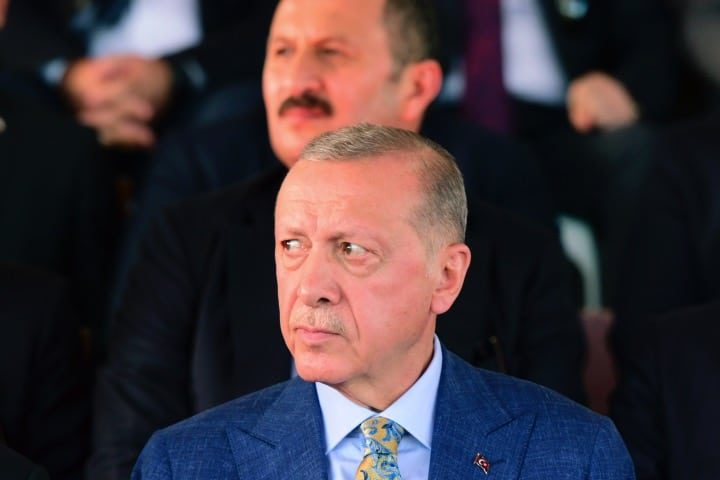
The European Parliament has recently ruled out Turkey’s European Union (EU) membership bid, at least according to a new report from the European Parliament’s foreign affairs committee published on July 18. This piece of news came after Turkish President Recep Tayyip Erdoğan’s move to approve Sweden’s NATO bid in principle, provided that Brussels expedites his country’s own EU application. For months, Ankara has been obstructing Sweden’s NATO membership bid on the pretext that Stockholm has been functioning as a sanctuary for Kurdish separatists and permitting provocative Quran burnings.
The July 18 report called on the EU and Turkey to overcome the present impasse and find “a parallel and realistic framework” for EU-Turkey ties. Elaborating, the report stated:
Unless there is a drastic change of course by the Turkish government, Turkey’s EU accession process cannot resume under the current circumstances, say MEPs on the Foreign Affairs Committee in a report adopted on Tuesday (by 47 votes in favor, no votes against and 10 abstentions). Urging the Turkish government, the European Union and its member states to break the current deadlock and move towards a closer partnership, MEPs recommend starting a reflection process to find a parallel and realistic framework for EU-Turkey relations. They call on the Commission to explore possible formats for a mutually appealing framework. In the report, MEPs confirm that Turkey remains a candidate for EU accession, a NATO ally and a key partner in security, trade and economic relations, and migration, stressing that Turkey is expected to respect democratic values, rule of law, human rights and abide by EU laws, principles and obligations.
Moreover, the same report asked Ankara to greenlight Sweden’s NATO bid without any further obstacles, pointing out that Sweden’s NATO accession process should not be related to Turkey’s EU accession attempt. MEPs in the European Parliament highlighted that each individual country’s path toward the EU should be according to its own merits, stating that the EU could not go ahead with the Turkish EU membership bid unless rudimentary reforms were made in the rule of law and human rights areas.
Although Turkey first applied to join the then-European Economic Community back in 1987, its bid for membership has been stalled for various political and historical reasons, including its role in the present partition of Cyprus and actions against political and Kurdish dissidents. Many in the West have claimed that there has been a growing trend of authoritarianism in Turkey over the past 10 years.
Notwithstanding Turkey’s NATO membership and collaboration with the EU to stem illegal migration, many view the country — an 85 million-strong majority Muslim nation — as incompatible with European values, making it difficult, if not impossible, for the country to blend in with other European member states.
The report proposed an “alternative and realistic framework” in lieu of Turkish EU membership and called on Ankara to put in more effort to prevent Russia from overcoming Western sanctions as a result of the Russo-Ukrainian conflict.
In 2019, The European Parliament called for the Turkish EU membership bid to be suspended entirely after what it claimed to be increasing human rights abuses.
Insider reports revealed that many MEPs on the committee were unhappy that NATO fast-tracked Turkey’s EU membership without their permission. Thus, to point out the differences between the EU and NATO, the European committee added an amendment to the report to elucidate the distinctiveness of both groups.
Spanish socialist MEP Nacho Sánchez Amor on the EU foreign affairs committee expressed his anger on Twitter that NATO chief Jens Stoltenberg appeared to make decisions on the EU’s behalf, asserting that the EU was independent of NATO.
Since the onset of the Russo-Ukrainian conflict in 2022, many in EU policymaking circles have been upset that NATO has apparently glossed over the EU’s role in making decisions. Many policymakers have been upset at EU Commission President Ursula von der Leyen and her supposed readiness to pander to Washington’s demands on the conflict in Ukraine.
Off the record, EU Commission officials have been quoted as saying that Turkey’s EU membership was impossible. Instead, they claim that it merely functioned as a cover to advance Turkish foreign policy.
Erdoğan’s decision to support Sweden’s NATO bid was widely perceived to be a rebuff to Russian President Vladimir Putin’s interest in the European arena. Just recently, Erdoğan also released a group of Ukrainian Azov commanders to Ukrainian leader Volodymyr Zelensky, breaching a prisoner-exchange agreement between Ukraine, Turkey, and Russia.
NATO Secretary-General Jens Stoltenberg announced Erdoğan’s declaration to “forward the accession protocol for Sweden [to join NATO]” to the Turkish parliament as soon as possible and work closely with the assembly to “ensure ratification.” He hailed Turkey’s move to support Sweden’s NATO bid as a “historic day,” and said that Turkey and Sweden had dealt with “Turkey’s legitimate security concerns.”
Not surprisingly, Erdoğan’s decision to greenlight Sweden’s NATO membership bid earned applause from the White House, with Biden praising the Turkish leader’s “commitment” to the military bloc’s expansion.
According to a release from the White House, Biden said:
I stand ready to work with President Erdoğan and Turkey on enhancing defense and deterrence in the Euro-Atlantic area. I look forward to welcoming Prime Minister [Ulf] Kristersson and Sweden as our 32nd NATO ally. And I thank Secretary General Stoltenberg for his steadfast leadership.
Erdoğan’s decision to lift his country’s veto came after he said earlier that morning that Ankara would consider Stockholm’s NATO membership bid if and only if EU officials opened the way for his country to join the EU.
“Turkey has been waiting at the door of the European Union for over 50 years now, and almost all of the NATO member countries are now members of the European Union. I am making this call to these countries that have kept Turkey waiting at the gates of the European Union for more than 50 years,” Erdoğan said. “Come and open the way for Turkey’s membership in the European Union. When you pave the way for Turkey, we’ll pave the way for Sweden as we did for Finland.”
The European Commission nonetheless rejected the notion that Turkey’s EU accession and Sweden’s NATO accession were linked, maintaining that the processes were “separate” and happening “in parallel.”
“The European Union has a very structured process of enlargement, with a very, very clear set of steps that need to be taken by all candidate countries and even by those that wish to become candidate countries,” said Dana Spinant, deputy chief spokesperson of the European Commission.



